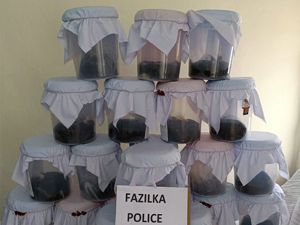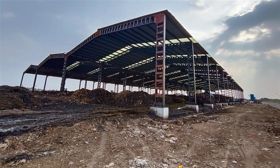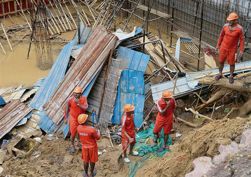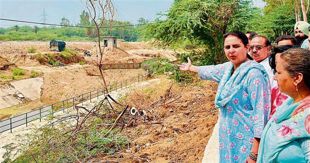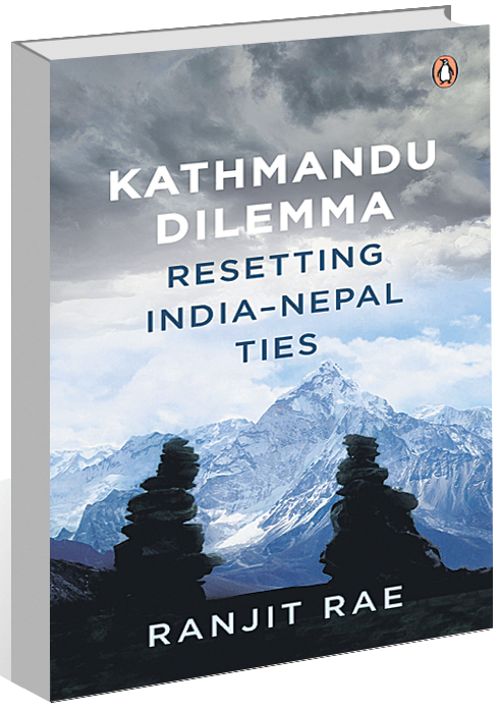
Kathmandu Dilemma: Resetting India-Nepal Ties by Ranjit Rae. Penguin Random House. Pages 237. Rs 499
Maj Gen Ashok K Mehta (Retd)
RANJIT RAE’S book is the outcome of an extended association with Nepal, first as Joint Secretary (North) from 2002-06 during the Maoist insurgency and peace process, and later as Ambassador (2013-16), when the Constitution was drafted and promulgated. It skips the Constituent Assembly I and skirts the pre-palace massacre periods. Even so, Rae covers contentious matters like Nepalese nationalism and anti-Indianism, the new Constitution and its fallout, boundary dispute, civilisational connect and ‘roti-beti rishta’, economic partnership, India’s stellar assistance during the 2015 earthquake and China’s all-pervasive presence and influence.
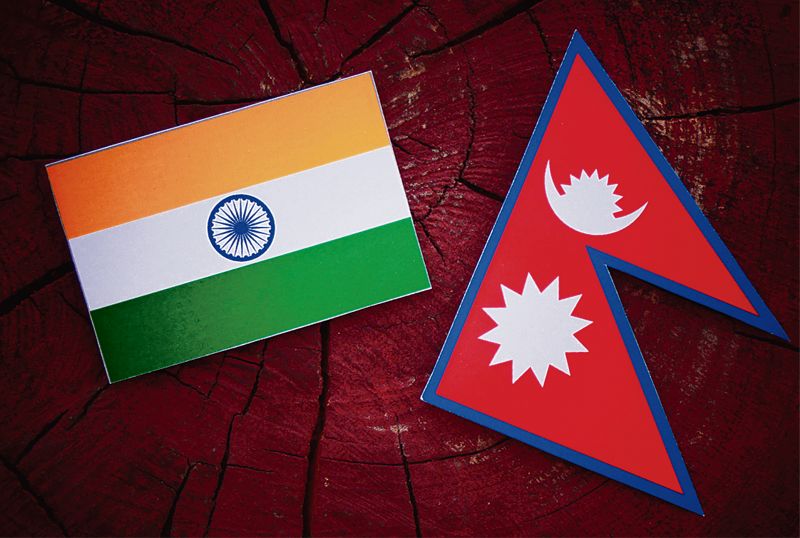
The contents of the two treaties — Peace and Friendship, 1950, and Tripartite Recruitment — are somewhat skimpy. Most valuable are recommendations throughout the book, which suggest a reset in relations, adopting the Bhutan model of treaty realignment. Rae has penned his experiences in an eminently readable style.
It was under Rae’s watch that the decline of India’s primacy in Nepal started: a clumsy attempt to stop the promulgation of the new Constitution, its fallout (the economic blockade), rise of nationalism, unison of Left parties (India’s Achilles’ heel), and advantage China. According to papers released last month by former Prime Minister KP Oli, “India threatened leaders of political parties not to promulgate the Constitution… as consequences would be negative.” This note was apparently handed over by the then Foreign Secretary S Jaishankar, who was made the fall guy.
The consequences were wholesomely negative for India, though Nepal bore the severe hardship of the blockade. The sterling work done by India’s military during the earthquake and all the monumental development assistance provided over the years were forgotten. Further, India failed to notice the change in Nepal brought about through the peace process it led, and India’s revised policy of democratisation of Nepal and mainstreaming the Maoists, replacing the twin pillar concept of constitutional monarchy and multi-party democracy. A new Nepal had been born — federal, secular, inclusive, democratic and republican — crowning historically the major political transformations in the country, nudged by India. But India’s Big Brother profile and taking Nepal for granted did not go away. Rae has been forthright on some of these issues.
His depiction of the boundary issue — the Kalapani dispute — presents the Indian perspective brilliantly, but New Delhi’s prevarication on talks gave Kathmandu and Oli the opportunity for cartographic aggression. Rae writes that “India rejected the offer of talks”, but it was too late in any case, precisely like the intervention on the Constitution hours before its adoption. Rae says the constitutional amendment (January 2016) did partially address Madhesi grievances on inclusive social justice and the new process of delimitation, which are yet to be fully implemented. Ironically, India never took up the Madhesi political demands till 2007, states Rae, and then dumped them after having backed their crusade for equality.
The most enlightening chapter is on economic partnership. It contains facts that explain why Nepal has not capitalised on its liquid oil, which others have called liquid gold: hydropower. Rae elucidates how hydropower and other contracts are awarded to India and China depending on the government in power. Historically, India has faced difficulties whenever Left governments were in power — starting from 1996, especially on hydropower projects, recruitment of Gorkhas and signing of treaties on national assets. The Mahakali treaty was signed when CPN (UML) was in power with two-thirds majority. But it split the party. Comparing Nepal’s water assets with those of Bhutan, a former Bhutanese natural resources minister told his Nepali counterpart: “Mixing politics with water doesn’t work.” Rae has included everything big and small concerning Nepal’s development in both public and private sectors.
The serving Gorkhas in the Indian Army and ex-servicemen connect is the most enduring Indian asset in Nepal. While our diplomats acknowledge its importance, they have not attempted any value add-ons. No one should doubt the loyalty of Nepali Gorkhas. There is no divided loyalty in their case, as might be in the case of ex-servicemen, as Rae fears. Even that is diminishing due to spectacular welfare benefits and hike in pensions.
The Eminent Persons Group (EPG) is not the body or format to arbitrate on strategic issues like the 1950 Treaty of Peace and Friendship. These need to be addressed at the highest political level. The Bhutan Treaty was re-written after great care in a closed-door meeting between PM Manmohan Singh, Foreign Minister Pranab Mukherjee and King Jigme Singye Wangchuck and his son. There were no aides. India was not keen to revise the treaty, but the King was.
Rae’s enumeration of China’s rise in Nepal is comprehensive, with India’s follies partly responsible for it. This has been covered in two recent books by Amish Mulmi and Sanjay Upadhya. Managing and red-lighting its ascendency began with India’s strategic re-posturing following the Oli-Prachanda power struggle. India’s fortunes may change thanks to Nepal’s Supreme Court, with a new Nepali Congress-led five party coalition government. But elections in 2022-end will indicate which way Nepal is headed. Rae’s epilogue is a masterly wrap-up, containing recommendations. By just implementing some of them, India-Nepal relations could be reset.
Join Whatsapp Channel of The Tribune for latest updates.






















